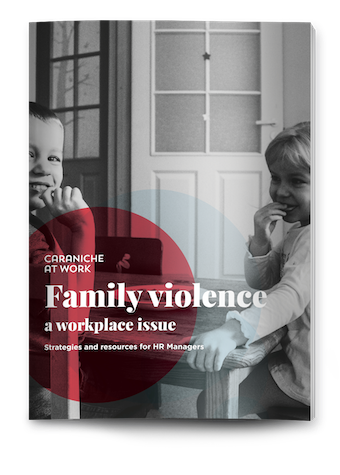
Most people’s lives and working days were impacted by the pandemic in some way. But for those of us working in healthcare, the emergency services or education, the pressures of the pandemic inevitably brought countless new demands and stressors.
And while the term moral injury may be relatively new in Australia, its usefulness as a diagnostic tool in recognising and treating mental ill health in the workplace has already been proven in the US and UK in the industries most impacted by the pandemic.
What is moral injury?
Moral injury occurs when people experience a discrepancy between the moral code they hold, in relation to how they operate within their workplace, which negatively impacts their psychological wellbeing and mental health.
The term moral injury was originally associated with the military in the US, but since the pandemic has come to apply to people working at the coal-face of Covid-19, whether as nurses, doctors, teachers, ambulance drivers or workers facing extraordinary circumstances.
It comes into play when we’re forced to operate in a certain way – perhaps due to the requirements of a role or the specific environment we’re working – that puts us at odds with our values – in opposition to our moral code.
This causes a cognitive dissonance between a person’s ideals and goals and the way they behave in the workplace. In the past two years we’ve seen this dissonance emerge more and more with clients who work in healthcare settings or emergency services.
Why does moral injury matter?
What’s useful about understanding moral injury is that once we know about it, we can use this knowledge to help clients who might be describing symptoms but not realise there’s now actually a term for it.
For clients, it’s reassuring to learn that what they’re experiencing may be common among their peers and other people who have been in similar roles or positions. That there’s nothing wrong with them and they are not alone in feeling this way.
This reassurance then gives clients more confidence that there’s an answer to what they’re going through and a way to seek support to recover from some the symptoms that might be plaguing them.
How does it manifest in the workplace?
Moral injury can occur in relation to an incident or ongoing situation. For example, when healthcare staff might have to, during the height of pandemic, decide who was to have access to limited ICU beds, that process goes against their moral code to do the best by all patients.
Because of the pressure created by the pandemic, hospital professionals around the world had to consider which patients were going to receive first-class treatment, due to the resources available, and which patients would be treated as best they could at the time.
As you can imagine, the impact of these decisions can have a cumulative effect, with symptoms that are then exacerbated over time. Similarly, an event can trigger moral injury. That said, moral injury occurs on a continuum and can result in minor and major symptoms.
For some people, moral injury can be so serious as to leave longer psychological impacts and the possibility of leaving a profession that becomes too triggering. For others, symptoms can be minor and require minimal intervention, with new strategies in place.
What are the symptoms?
In Phoenix Australia’s useful online resource, Moral Stress Amongst Healthcare Workers During Covid-19: A Guide to Moral Injury the authors describe the symptoms of moral injury around experiencing certain emotions or uncertainties, which include feeling:
Moral injury can even lead to an experience of existential and spiritual breakdown – particularly for people who come from a religious background or faith. They might even start to question what they believe, if such awful circumstances are playing out in the world.
Is it possible to recover?
The good news is that people can recover from moral injury. There’s always an opportunity for post-traumatic growth and resilience when treating moral injury in individuals, and an even greater opportunity when we’re able to take a whole-of-organisation approach.
We’ve seen the best outcomes with clients when we’ve been able to encourage and support the implementation of different interventions across all three levels – working with individuals, teams and the organisation as a whole.
Having a supportive and cohesive team that wants to do the best by their colleagues can be the very thing that gets people through these extraordinary circumstances. Similarly, knowing that an organisation has your back can make all the difference to workers.
When we know that organisations appreciate the work we’re doing, communicate clearly about decisions and can offer practical guidance and support to us in difficult times, we’re more likely to stay in our professions and recover from moral injury and other workplace related stress symptoms.
For organisations, that might mean developing a Covid-19 response plan or wellbeing plan, working with teams and individuals to hear what needs to change – so that people can be supported holistically in the workplace and empowered to do what they love.

Many of the new tech based EAPs have been making inaccurate claims about traditional EAPs as part of their marketing and promotion.
Read more
Moral injury in the workplace can negatively impact our psychological wellbeing and mental health. Here’s why it matters.
Read more
When choosing how to cultivate wellness in the workplace, it’s never been more important to take an organisation-wide approach. Here’s why.
Read more
Australian workplaces are waking up to the impact of family violence. Caraniche at Work has developed a free report for HR Managers who want to take the lead.